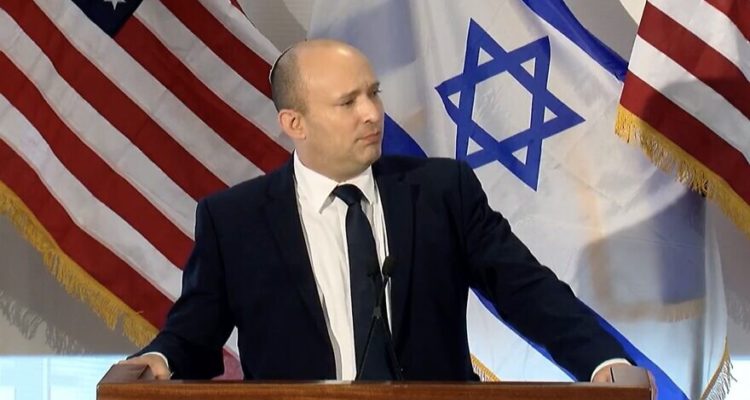“The State of Israel must preserve its freedom of action along with the ability to take action in any situation and in any political circumstance,” Prime Minister Bennett said.
By Donna Rachel Edmunds, World Israel News
Israel will continue to maintain freedom of action against Iran, even if the United States returns to the nuclear deal with Tehran, Israel’s Prime Minister, Naftali Bennett has emphasized.
Talks to revive the Joint Comprehensive Plan of Action (JPCOA), commonly referred to as the Iran nuclear deal, will reconvene next week in Vienna following a four month break. Negotiating through third party intermediaries, the Biden Administration hopes to put the brakes on Iran’s nuclear program in return for lifting sanctions. Other members of the international community, including European nations, Russia and China are also involved in the talks, having been signatories to the previous deal which fell apart when the Trump administration pulled the U.S. out in 2018, followed shortly thereafter by Tehran.
But speaking in Hebrew at a national security conference at the Institute of Policy and Strategy Tuesday morning, Bennett stated: “Even if the nuclear deal is renewed, Israel is not a signatory to it and will not be restricted by its terms.”
Noting that the former JPCOA was like “a sleeping pill” for Israel, as its defense establishment saw the agreement as a sign that it could be less vigilant Bennett added: “We won’t repeat the mistakes of last time, when the agreement put us to sleep.”
Instead, Bennett is positioning Israel as the last line of defense against a nuclear Iran.
“Iran now surrounds Israel, and pursuing individual terrorists sent out by the Al-Quds force no longer makes sense – we have to get the people sending them out,” he told conference delegates. “We must also exploit our relative advantages (our economic strength, cyber, international legitimacy) against Iran’s vulnerabilities in a far more effective way than was done in the past.”
Bennett further noted “We must widen the gap between ourselves and our enemies, each and every one of them, investing in strengthening our capabilities – missiles, cyber, other technologies – and we also have to increase officer pay in the IDF. We have to build up our strengths to the point where our superiority is undeniable and will deter others from challenging us.”
Emphasizing again that Israel will take this action even if the international community disagrees, Bennett added: “The State of Israel must preserve its freedom of action along with the ability to take action in any situation and in any political circumstance.”
In recent weeks the Bennett government has been at odds with the Biden Administration over certain matters, including how to thwart Iran’s nuclear ambitions. While Jerusalem prefers to continue with the direct approach favored by former Prime Minister Benjamin Netanyahu, striking at Iran’s sites in order to sabotage their refinement efforts, Washington would rather take a diplomatic route.
In his speech, Bennett made a case for putting direct pressure on Iran at this time, arguing that the Iranian regime is already weak.
“The Iranian regime is decaying – it’s a useless regime, with a weak economy and a corrupt administration,” the Prime Minister continued. “They maintain control only via force and by instilling fear. And they are far weaker than what people believe. Right now, we are at a critical juncture in our prolonged struggle against them – a struggle that is not just Israel against Iran but in fact the entire world against this extremist Islamic regime. We hope very much that the rest of the world will not shrink from this fight, but even if they do, we have no intention of doing so.”
However, he acknowledged the difference of opinion with Washington, saying: “Complex times now lie ahead, and it is possible that we will have to deal with disagreements with some of our closest allies – but this will not be the first time such a thing has happened.




